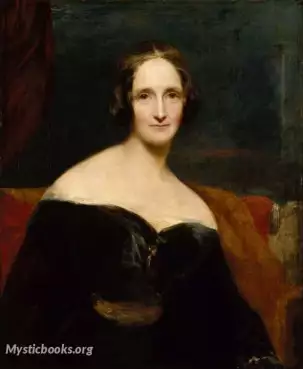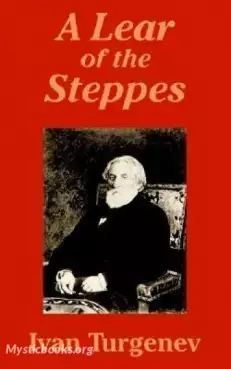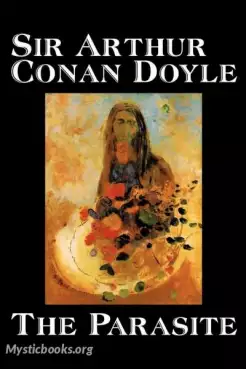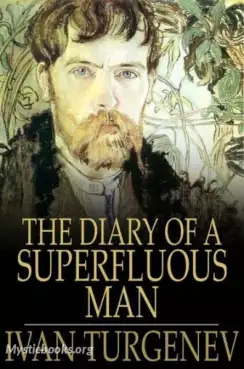
Mathilda
by Mary Wollstonecraft Shelley
'Mathilda' Summary
Narrating from her deathbed, Mathilda, a young woman barely in her twenties, writes her story as a way of explaining her actions to her friend, Woodville. Her narration follows her lonely upbringing and climaxes at a point when her unnamed father confesses his incestuous love for her. This is then followed by his suicide by drowning and her ultimate demise; her relationship with the gifted young poet, Woodville, fails to reverse Matilda's emotional withdrawal or prevent her lonely death.
The novella begins with readers becoming aware that this story is being narrated in the first person, by Mathilda, and that this narration is meant for a specific audience in answer to a question asked prior to the novella's beginning: "You have often asked me the cause of my solitary life; my tears; and above all of my impenetrable and unkind silence." Readers quickly learn that Mathilda is on her deathbed and this is the only reason she is exposing what seems to be a dark secret.
Mathilda's narrative first explores the relationship between her mother and father, and how they knew each other growing up. Mathilda's mother, Diana, and her father were childhood friends; Mathilda's father found solace in Diana after the death of his own mother and the two married not long after. Mathilda, as narrator, notes that Diana changed Mathilda's father making him more tender and less fickle. However, Mathilda was born a little more than a year after their marriage and Diana died a few days after her birth, causing her father to sink into a deep depression. His sister, Mathilda's aunt, came to England to stay with them and help care for Mathilda, but Mathilda's father, unable to even look at his daughter, left about a month after his wife's death and Mathilda was raised by her aunt.
Mathilda tells Woodville that her upbringing, while cold on the part of her aunt, was never neglectful; she learned to occupy her time with books and jaunts around her aunt's estate in Loch Lomond, Scotland. On Mathilda's sixteenth birthday her aunt received a letter from Mathilda's father expressing his desire to see his daughter. Mathilda describes their first three months in each other's company as being blissful, but this ended first when Mathilda's aunt dies and then, after the two return to London, upon Mathilda's father's expression of his love for her.
Leading up to the moment of revelation, Mathilda was courted by suitors which, she noticed, drew dark moods from her father. This darkness ensued causing Mathilda to plot a way of bringing back the father she once knew. She asked him to accompany her on a walk through the woods that surrounded them and, on this walk, she expressed her concerns and her wishes to restore their relationship. Her father accused her of being "presumptuous and very rash." However, this did not stop her and he eventually confessed his incestuous desire regarding her. Mathilda's father fainted and she retreated back to their home. Her father left her a note the next morning explaining that he would leave her and she understood that his actual intent was to commit suicide. Mathilda followed him, but was too late to stop him from drowning himself.
For some time after his death, Mathilda returned to society as she became sick in her attempts to stop her father. She realized, though, that she could not remain in this society and she faked her own death to ensure that no one would come looking for her. Mathilda re-established herself in a solitary house in the heath. She has a maid who came to care for the house every few days, but other than that she had no human interaction until Woodville also established residence in the heath about two years after she chose to reside there.
Woodville was mourning the loss of his betrothed, Elinor, and a poet. He and Mathilda struck a friendship; Woodville often asked Mathilda why she never smiled but she would not go into much detail regarding this. One day, Mathilda suggested to Woodville that they end their mutual sorrows together and commit suicide. Woodville talked Mathilda out of this decision, but soon after had to leave the heath to care for his ailing mother. Mathilda contemplates her future after his departure, and while walking through the heath, gets lost and ends up sleeping outside for a night. It rains while she sleeps outside and, after she makes her way back to her home, she becomes extremely sick.
It is in this state that Mathilda decides to write out her story to Woodville as a way of explaining to him her darker countenance, even though she recognizes that she does not have much longer to live.
Book Details
Authors

Mary Wollstonecraft Shelley
England
Mary Shelley lived a literary life. Her father encouraged her to learn to write by composing letters, and her favorite occupation as a child was writing stories. Unfortunately, all of Mary's juvenilia...
Books by Mary Wollstonecraft ShelleyDownload eBooks
Listen/Download Audiobook
- Select Speed
Related books

The Chimes by Charles Dickens
The Chimes: A Goblin Story of Some Bells that Rang an Old Year Out and a New Year In, commonly referred to as The Chimes, is a novella written by Char...

Aunt Jo's Scrapbag by Louisa May Alcott
A collection of short stories by Louisa May Alcott that were written with the intent to entertain the whole family and to fill children's heads with w...

A Lear of the Steppes by Ivan Turgenev
This book contains three novellas by one of the major writers of Russian literature. The first, A LEAR OF THE STEPPES, is a brilliant re-imagining of...

The Face in the Abyss by Abraham Merritt
It is an exciting fantasy novel filled with adventure and suspense. Written in 1931, the book is a classic in the fantasy genre and has influenced man...

The Parasite by Arthur Conan Doyle
The Parasite is an 1894 novelette by Sir Arthur Conan Doyle. The Parasite makes use of a form of mind control similar to the mesmerism of the Victoria...

The Wit and Humor of America, Vol 08 by Marshall Pinckney Wilder
The Wit and Humor of America is a 10 volume series. In this, the eighth volume, 53 short stories and poems have been gathered from 44 authors. This vo...

The Boy Travellers in Australasia by Thomas Wallace Knox
Embark on an exhilarating journey with our intrepid explorers as they set foot on the mysterious and enchanting lands of Australasia! In "The Boy Trav...

The Europeans by Henry James
The Europeans: A sketch is a short novel by Henry James, published in 1878. It is essentially a comedy contrasting the behaviour and attitudes of two...

Aunt Jo's Scrap-Bag, Vol. 5 by Louisa May Alcott
A book of short stories by Louisa May Alcott, author of Little Women and Eight Cousins. It includes Two Little Travellers, a story about two very diff...

The Diary of a Superfluous Man by Ivan Turgenev
The Diary of a Superfluous Man is an 1850 novella by the Russian author Ivan Turgenev. It is written in the first person in the form of a diary by a m...
Reviews for Mathilda
No reviews posted or approved, yet...